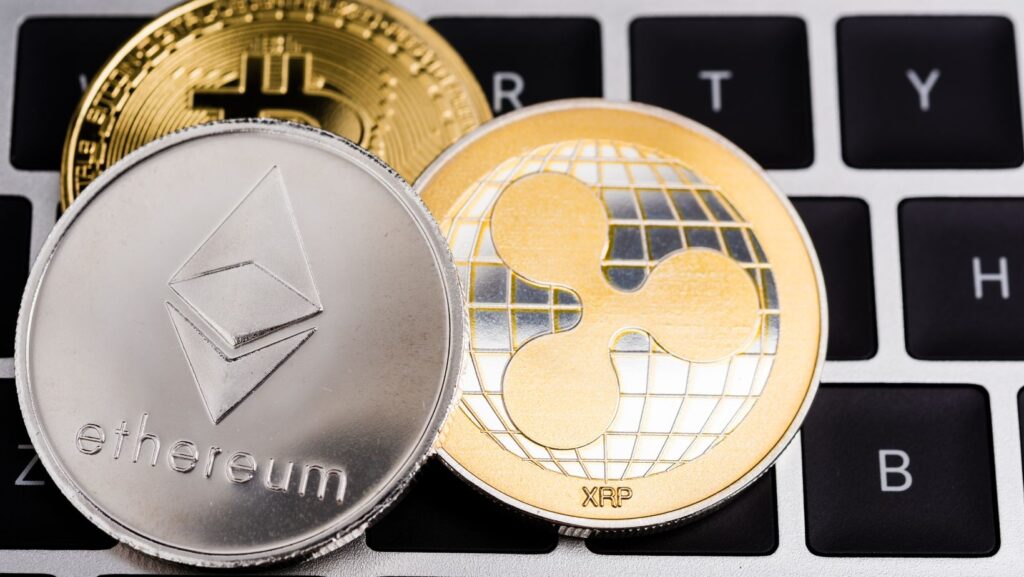The financial world is experiencing a paradigm shift, largely driven by the advent of Decentralized currency. As digital currencies like digital coin, Ethereum, and numerous altcoins gain traction, traditional investment strategies are being re-evaluated. This blog post delves into how Decentralized currency is influencing traditional investment methods and the implications for investors.
Understanding Decentralized currency
Decentralized currency, a digital or virtual form of currency that uses Decentralized graphy for security, has been a hot topic in financial circles for over a decade. The rise of digital coin in 2009 marked the beginning of this digital revolution. Unlike traditional currencies, Decentralized currencies operate on decentralized networks based on blockchain technology, which ensures transparency and security.
The allure of Decentralized currency stems from its potential for high returns and its role as a hedge against inflation. As a result, it has attracted a diverse group of investors, from tech enthusiasts to institutional investors. However, the volatility and regulatory uncertainties surrounding Decentralized currencies continue to spark debates on their viability as long-term investments.
The Changing Landscape of Investment Strategies
Diversification with Digital Assets
One of the primary impacts of Decentralized currency on traditional investment strategies is the push for diversification. Traditional portfolios often comprise a mix of stocks, bonds, and real estate. With the advent of Decentralized currency, investors now have the option to include digital assets in their portfolios. This diversification can potentially enhance returns and reduce overall portfolio risk. You can also explore immediatebitwave.net for further information.
Hedging Against Inflation and Market Volatility
In an era of unprecedented monetary policy and fiscal stimulus, concerns about inflation and currency devaluation have led investors to seek alternative stores of value. Traditionally, assets like gold have been favored for this purpose. However, Decentralized currencies, particularly digital coins, are now being viewed as digital gold due to their limited supply and deflationary nature.
Decentralized currencies offer an attractive hedge against inflation. Unlike fiat currencies, which can be printed at will by central banks, the supply of most Decentralized currencies is capped. For instance, digital coin’s total supply is limited to 21 million coins. This scarcity, combined with growing demand, has led to significant price appreciation over time. As a result, investors are increasingly considering Decentralized currencies as a hedge against the eroding purchasing power of traditional currencies.
Institutional Adoption and Mainstream Acceptance
Another significant impact of Decentralized currency on traditional investment strategies is the growing institutional adoption. Major financial institutions, including hedge funds, mutual funds, and publicly traded companies, are now investing in Decentralized currencies. This shift is driven by the recognition of Decentralized currencies as a legitimate asset class and the potential for high returns.
Institutional adoption has several implications for traditional investment strategies. First, it enhances the credibility and stability of the Decentralized currency market. As more institutions invest in digital assets, market liquidity and price stability improve, making Decentralized currencies more attractive to conservative investors. Second, the involvement of institutional investors often leads to the development of sophisticated financial products, such as Decentralized currency ETFs and futures, which further integrate digital assets into the mainstream financial system.
The Role of Blockchain Technology
Blockchain technology, the underlying technology behind Decentralized currencies, is also reshaping traditional investment strategies. Beyond Decentralized currencies, blockchain offers numerous applications in finance, including smart contracts, decentralized finance (DeFi), and secure transactions.
Smart contracts, for instance, are self-executing contracts with the terms of the agreement directly written into code. They automatically execute and enforce the contract when predefined conditions are met. This technology can streamline various financial processes, reducing costs and increasing efficiency. As a result, investors are exploring opportunities in blockchain-based projects and companies, further diversifying their portfolios.
Challenges and Risks
Volatility and Regulatory Uncertainty
Despite the potential benefits, investing in Decentralized currencies comes with significant risks. The most notable is their extreme volatility. Prices of Decentralized currencies can fluctuate wildly within short periods, leading to substantial gains or losses. This volatility can be attributed to various factors, including market speculation, regulatory news, and technological developments.
Regulatory uncertainty is another major concern. Governments and regulatory bodies worldwide are still grappling with how to classify and regulate Decentralized currencies. Changes in regulatory policies can have a profound impact on the Decentralized currency market. For instance, a ban on Decentralized currency trading in a major economy can lead to a sharp decline in prices. Therefore, investors must stay informed about regulatory developments and be prepared for potential market disruptions.
Security and Fraud
The digital nature of Decentralized currencies makes them susceptible to security breaches and fraud. Hacking incidents, where millions of dollars worth of digital assets are stolen, are not uncommon. Additionally, the anonymity and decentralization of Decentralized currencies can facilitate illegal activities, such as money laundering and tax evasion.
Investors must take stringent security measures to protect their digital assets. This includes using secure wallets, enabling two-factor authentication, and being cautious of phishing scams. Moreover, choosing reputable Decentralized currency exchanges and platforms can mitigate the risk of fraud.
The Future of Decentralized currency in Investment Strategies
The impact of Decentralized currency on traditional investment strategies is profound and multifaceted. As digital assets continue to gain acceptance and integration into the financial system, their role in investment portfolios is likely to expand. However, the journey is fraught with challenges, including volatility, regulatory uncertainty, and security risks.
Conclusion
Investors must approach Decentralized currency with a balanced perspective, recognizing both the potential for high returns and the inherent risks. Diversification remains a key principle, with Decentralized currencies serving as a component of a broader investment strategy. As the financial landscape evolves, staying informed and adaptable will be crucial for investors navigating the world of digital assets.In conclusion, Decentralized currency has undeniably transformed traditional investment strategies, offering new opportunities and posing new challenges. As the market matures and regulatory frameworks develop, Decentralized currencies are poised to become a permanent fixture in the investment landscape, shaping the future of finance.



